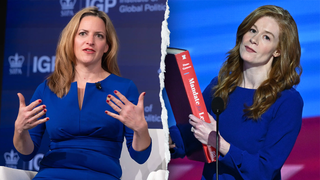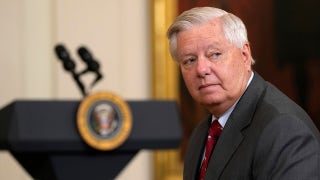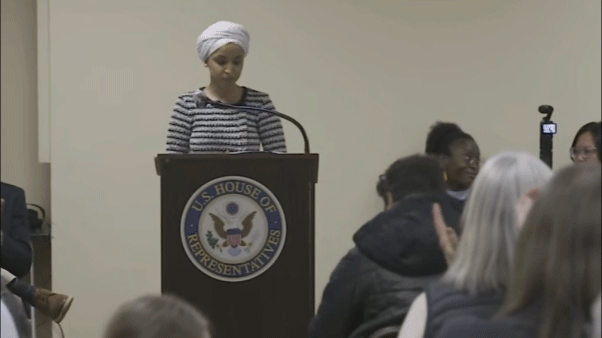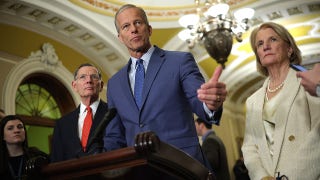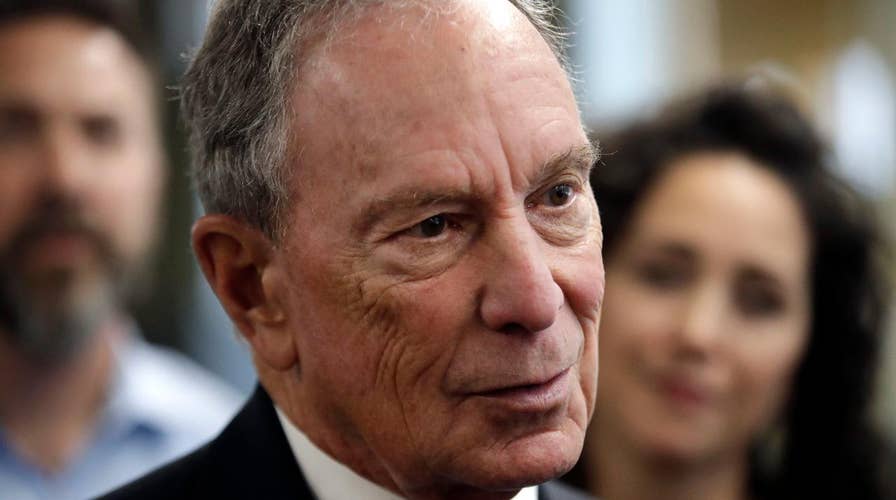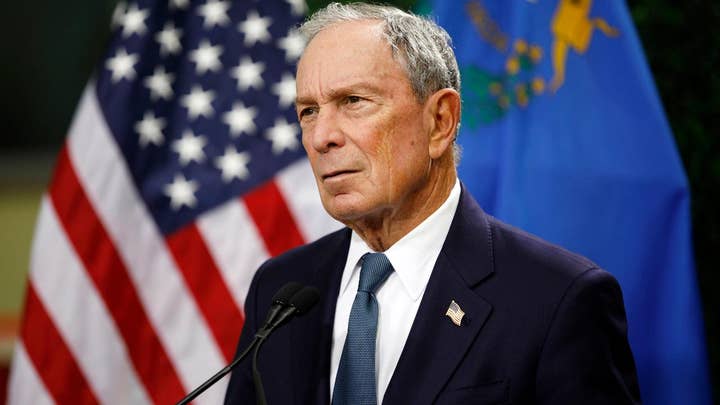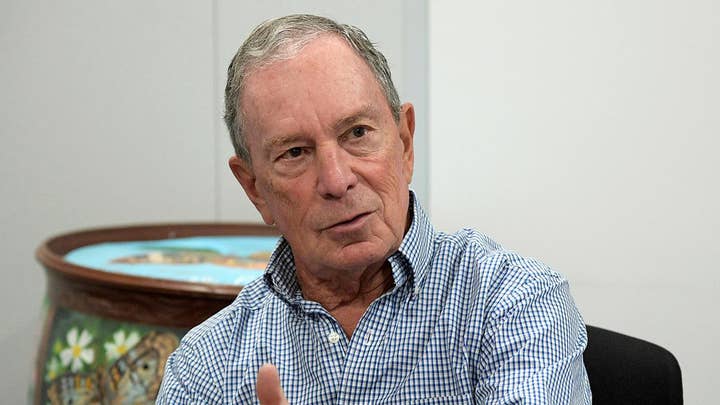Democratic presidential candidates rip Michael Bloomberg's potential White House bid
Former New York City Mayor Michael Bloomberg gets an icy reception from his possible 2020 rivals; reaction form Josh Kraushaar, politics editor for The National Journal.
The presidential campaign trail has been littered with failed candidates who launched their White House runs late in the game or even skipped the early voting states -- but history doesn’t appear to be bothering Mike Bloomberg, as the former New York City mayor, billionaire business mogul and environmental and gun-control advocate moves closer to launching his candidacy for the presidential nomination as a Democrat.
Aides are expected to file to place Bloomberg’s name in the primary ballot in Arkansas on Tuesday. That would follow a similar move in Alabama this past Friday, which was the deadline for that state.
Despite the media attention surrounding his potential entry, however, the famous billionaire has faced immense political hurdles to gaining traction in this crowded primary contest -- starting with his early-state approach. If he were to follow through and launch a campaign, Bloomberg would be jumping into the race with less than three months to go until Iowa kicks off the presidential primary and caucus calendar.
BLOOMBERG WON'T COMPETE IN EARLY VOTING STATES IF HE RUNS FOR WHITE HOUSE
And, he would be fighting an air war of sorts, rather than pursuing a ground game – as top advisers said Bloomberg would skip campaigning in the four early voting states of Iowa, New Hampshire, Nevada, and South Carolina, instead likely blanketing the airwaves with TV commercials in the delegate-rich states that would vote in March and beyond.
Add to that poll numbers not suggesting a groundswell of support by primary voters for a Bloomberg candidacy -- and some recent eyebrow-raising comments that Chinese leader Xi Jinping was “not a dictator” – and it appeared that Bloomberg, despite his billions of dollars, had his work cut out for him if he were to declare his candidacy.
Veteran political scientist Wayne Lesperance noted that Bloomberg “seeks to do something no candidate has accomplished in recent memory.”
Many candidates launching bids this late into a cycle – even with a generous heaping of anticipation – have crashed and burned. Think retired Gen. Wesley Clark in the Democrats' 2004 primaries, Sen. Fred Thompson of Tennessee in 2008 GOP race and Gov. Rick Perry of Texas in the 2012 Republican primaries.
THE LATEST FROM FOX NEWS ON THE 2020 PRESIDENTIAL CAMPAIGN
Bloomberg – if he were to run – likely would skip the early voting states as well, concentrating on the Super Tuesday states and beyond. The early states – especially Iowa, New Hampshire, and South Carolina -- put a premium on old-fashioned retail politics rather than blasting the airwaves with ads, and Bloomberg advisers have acknowledged it’s too late to compete in those states with the top-tier campaigns – which already have built up formidable grassroots outreach operations.
"If we run, we are confident we can win in states voting on Super Tuesday and beyond, where we will start on an even footing. But the late timing of our entry means that many candidates already have a big head start in the four early states, where they've spent months and months campaigning and spending money,” Bloomberg adviser Howard Wolfson said in a statement Friday.
Bloomberg’s pitch to defy conventional wisdom didn’t sit well with many in the early-voting states.
Longtime New Hampshire Democratic Party chair Ray Buckley emphasized, “We are disappointed and frankly very surprised that any candidate would launch a campaign for the White House where their path doesn’t run through New Hampshire or any of the other early states.”
His Iowa counterpart, Troy Price, highlighted that his state “is one of the last places where retail politics and grassroots organizing run strong, and our process — along with the other early states — makes candidates and their campaigns better prepared for a general election fight.”
The last major candidate to skip the early voting states didn’t fare well. Former New York City Mayor Rudy Giuliani – Bloomberg’s predecessor at City Hall – was topping the GOP national polls in the autumn of 2007, but he put his focus on Florida in the 2008 primaries. His poor showings in the early states blunted his momentum and doomed his campaign.
Lesperance, the vice president of academic affairs at New Hampshire-based New England College, spotlighted that the primary system “is intended to serve as a bulwark against fly-by-night candidates who join the presidential race by virtue of their celebrity or wealth.”
While Bloomberg advisers emphasized they had “enormous respect” for the early voting states, they also noted that the race for the nomination would be a battle for delegates, and only a small fraction of those delegates would be up for grabs in the first four contests.
Bloomberg’s strategy would focus on Super Tuesday, just days after South Carolina -- the fourth and final early-voting state – holds its contest. Super Tuesday has an enormous cache of delegates up for grabs in states coast to coast, including giants like California and Texas, and it could cost tens of millions of dollars to blanket those states with TV ads.
Such an ad budget would be out of reach for most of the 2020 White House contenders – but not Bloomberg. Still, veteran operatives for the Democrats have noted that while paid media could be effective, it had limitations.
While Bloomberg’s well respected for his leadership and his funding of the movements to tackle gun violence and combat climate change, there’s no outcry or hunger among the Democrats for a 70-something white male moderate billionaire, analysts have said.
Bloomberg was polling in the low single digits in 2020 presidential nomination surveys in March, when he announced he wouldn’t run for the White House. That’s where he has stood in a Morning Consult-Politico survey conducted in the past few days.
On Monday, a new survey from Quinnipiac University indicated that 54 percent of Democratic primary voters in New Hampshire said they definitely wouldn’t vote for Bloomberg if he entered the race.
Kathy Sullivan, a Democratic National Committee member and former New Hampshire party chair who has remained neutral in the primary race, told Fox News, “I haven’t heard anyone in the state express any concern whatsoever that there aren’t any good, qualified, candidates.”
She emphasized, “If anything, we are having a tough time choosing from the existing field.”
CLICK HERE TO GET THE FOX NEWS APP
Then, there’s his China comments.
Bloomberg was beat up by conservative media in September after saying in an interview that Chinese Communist Party leader Xi Jinping was not a dictator.
“The Communist Party wants to stay in power in China, and they listen to the public,” Bloomberg said. “Xi Jinping is not a dictator. He has to satisfy his constituents or he’s not going to survive.”


